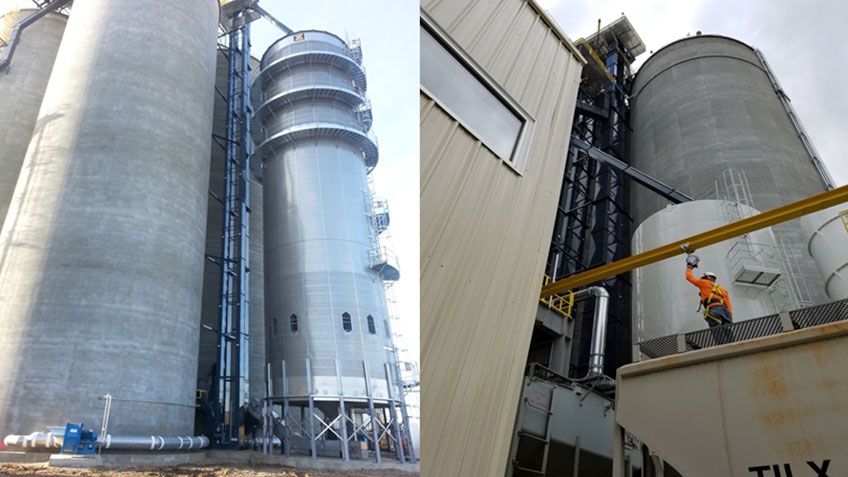To lay the foundation for a fully automated terminal, Wachter and MFC decided to deploy a centralized, scalable PlantPAx DCS. “This was the first time MFC was deploying a centralized, DCS in a terminal,” said Daniel Alvarez, automation software systems consultant at Wachter and a lead on the project. “We knew that the PlantPAx modern DCS would be easy to design and deploy quickly, helping to get the terminal operating sooner.”
When designing the control system, Wachter leveraged the Rockwell Automation Library of Process Objects. The pre-built, pre-engineered and tested process objects allowed Wachter to quickly design and deploy the system. The Rockwell Software® Studio 5000® Logix Emulate™ software application enabled the Wachter team to validate, test and optimize code without hardware. This reduced design time by around 25 percent, and allowed the team to gather buy-in from MFC stakeholders and train operators.
With an EtherNet/IP™ backbone, the modern DCS integrates smoothly with the plant’s new machines – such as conveyors and dryer systems – to efficiently monitor and visualize the terminal from inbound to outbound. This comprehensive view enables operators to control all areas of the terminal through only three workstations located at receiving, weighing and loadout. Typically, older terminals would require multiple operators to manually manage the process.
The new system also smoothly manages enterprise-level monitoring, data storage and alarming. The system’s connectivity to the enterprise-level monitoring also enables remote access. If an issue arises, Wachter can remotely access the control system for maintenance and troubleshooting, reducing costs and time for both.
